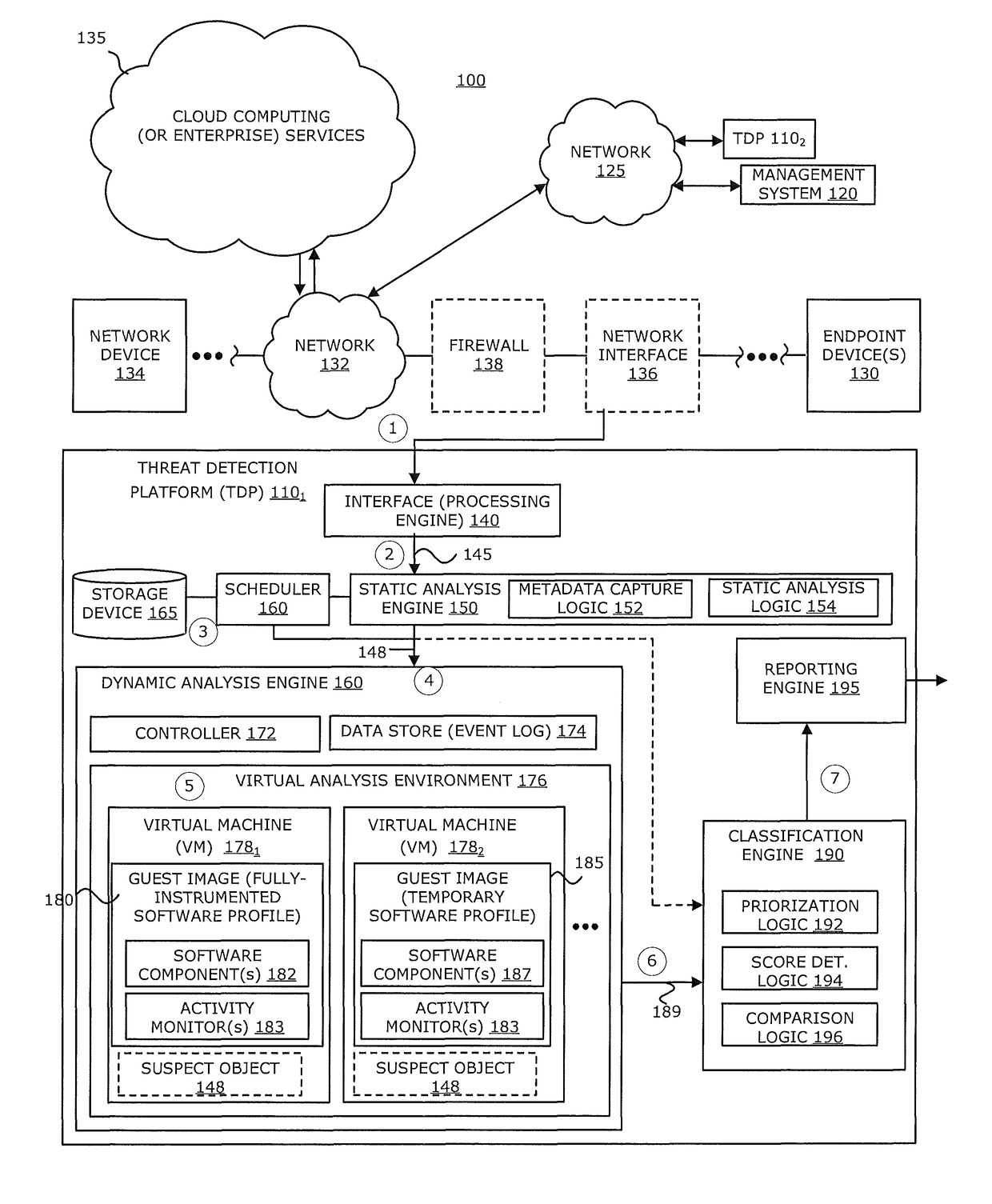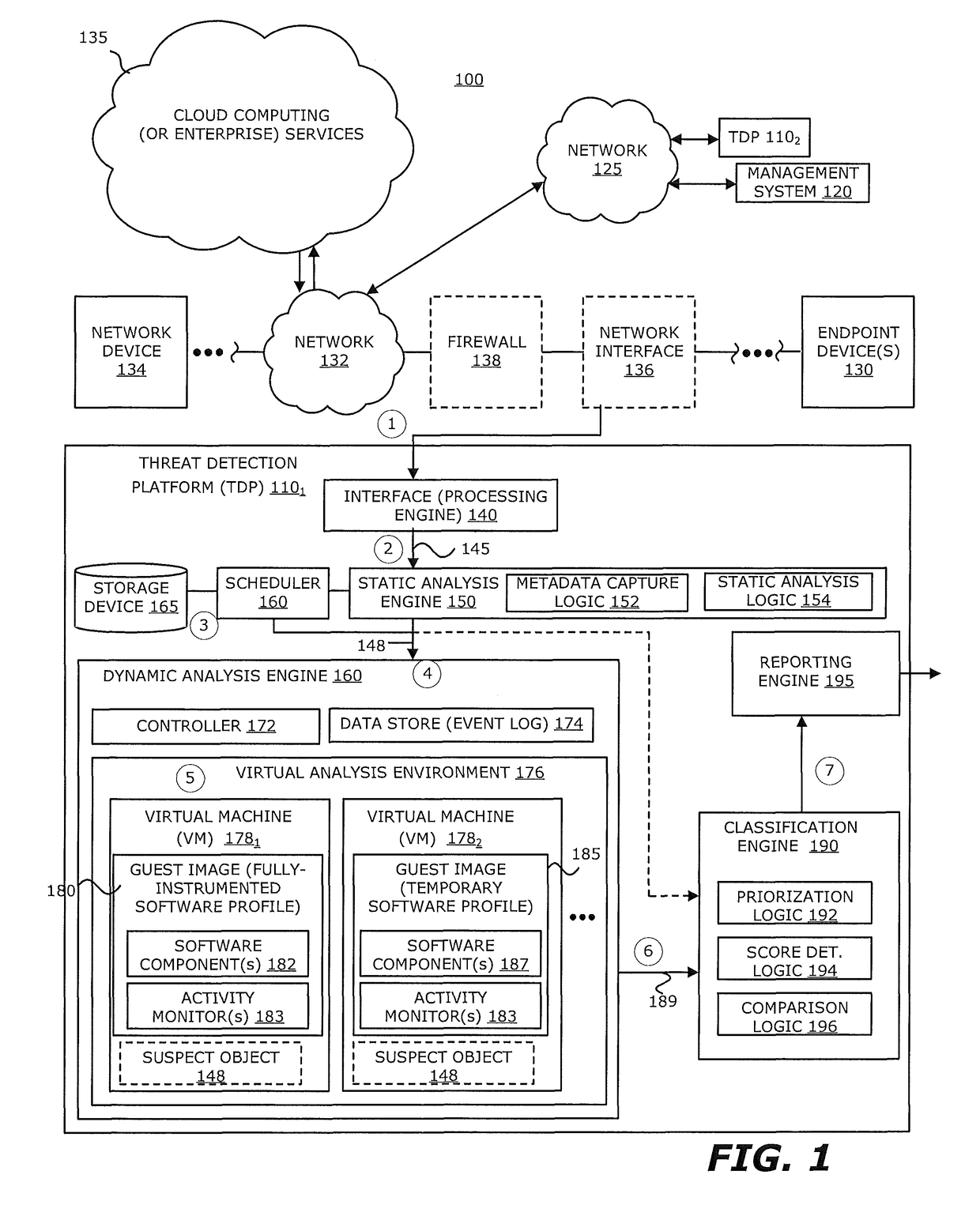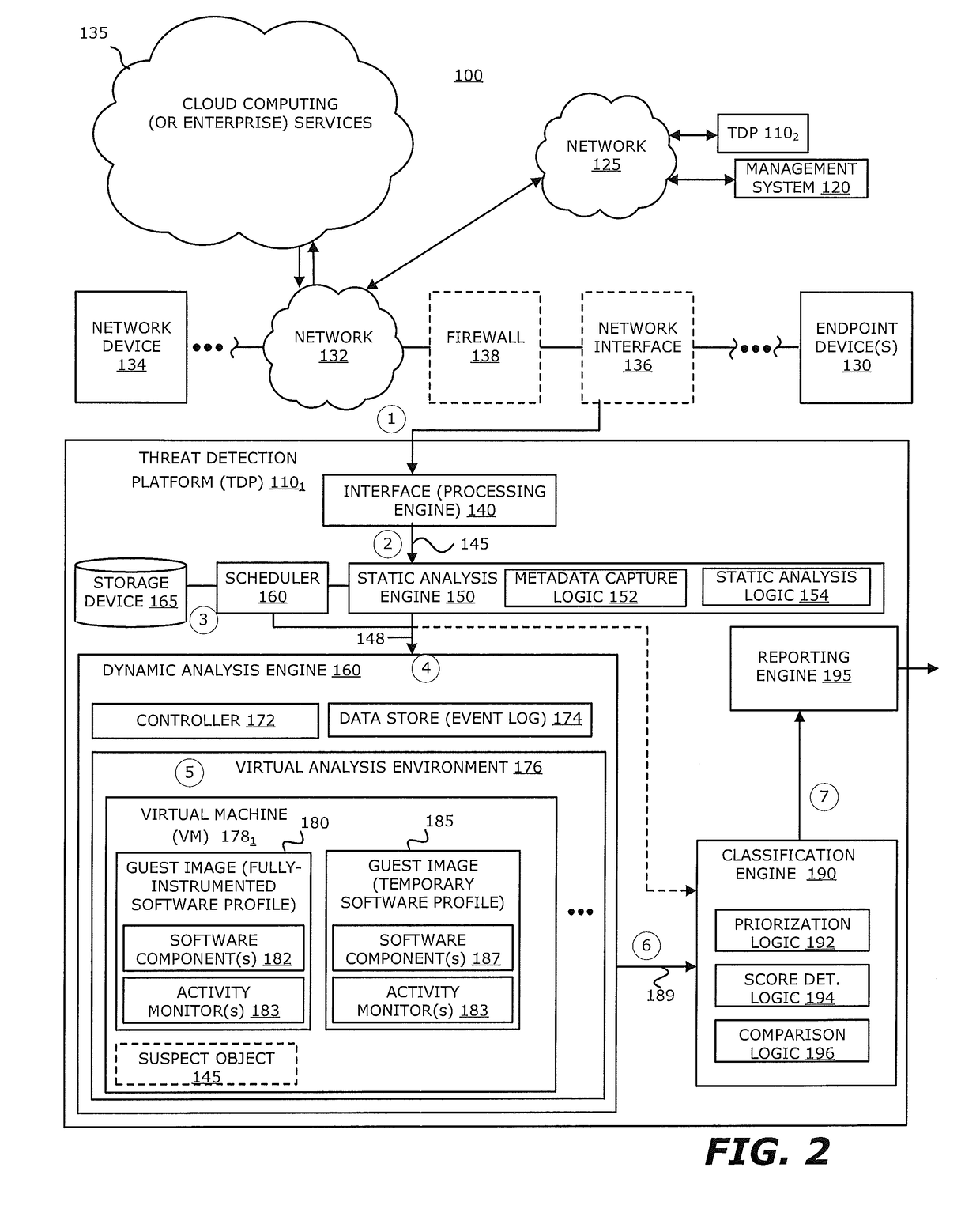Zero-day rotating guest image profile
a guest image and profile technology, applied in the field of cyber security, can solve the problems of ineffective anti-virus scanning programs, short classification of malicious objects, and ineffective detection of zero-day exploits by conventional anti-virus scanning programs
- Summary
- Abstract
- Description
- Claims
- Application Information
AI Technical Summary
Benefits of technology
Problems solved by technology
Method used
Image
Examples
first embodiment
[0043]As further shown in FIG. 1, the first TDP 1101 includes a communication interface 140 featuring a processing engine, static analysis engine 150, scheduler 160, storage device 165, dynamic analysis engine 170, classification engine 190, and reporting engine 195. Herein, the processing engine 140 receives a flow that includes an object and converts that object into a format, as need or appropriate, on which deep scanning by the static analysis engine 150 can be applied (see operations 1&2). This conversion and scanning may involve decompression of the object, decompilation of the object, extraction of specific data associated with the object, and / or emulation of the extracted data (like Javascript).
[0044]The static analysis engine 150 may include one or more controllers (e.g., processing circuitry such as one or more processors) that features metadata capture logic 152 and static analysis logic 154. For example, the metadata capture logic 152 is responsible for extracting and / or...
second embodiment
[0058]Referring to FIG. 2, an exemplary block diagram of a network 200 deploying a plurality of TDP 1101-110N, including the first TDP 1101, is shown. The first TDP 1101 includes the communication interface 140, the static analysis engine 150, the scheduler 160, the storage device 165, the dynamic analysis engine 170, the classification engine 190, and the reporting engine 195, as described above. However, in lieu of configuring the virtual analysis environment 176 with multiple virtual machines, a single virtual machine (e.g., first VM 1781) may be provisioned to operate in accordance with both the fully-instrumented, legacy software profile and the temporary software profile. These operations may be concurrent (e.g., occurring at least partially at the same time) or in series. As an example, this configuration may occur in response to a release of a new version of software (e.g. software 1.5.1), which is a minor update from a prior version (e.g., software 2.0) and relies on the sa...
third embodiment
[0062]Referring to FIG. 3, an exemplary block diagram of a network 300 deploying the plurality of TDP 1101-110N, including the first TDP 1101, is shown. The first TDP 1101 includes the communication interface 140, the static analysis engine 150, the scheduler 160, the storage device 165, the dynamic analysis engine 170, the classification engine 190, and the reporting engine 195, as described above.
[0063]Herein, the first VM 1781 may be provisioned with the first guest image 180, which is configured with the latest, fully-instrumented software profile corresponding to characteristics of the suspect object 148. As shown, the first guest image 180 includes one or more software components 182 that are configured to process the suspect object 148 within the virtual analysis environment 176 and activity monitors 183 that are configured to monitor behaviors of the software component 182 when processing the suspect object 148. However, in lieu of including the software component 187, the s...
PUM
 Login to View More
Login to View More Abstract
Description
Claims
Application Information
 Login to View More
Login to View More - R&D
- Intellectual Property
- Life Sciences
- Materials
- Tech Scout
- Unparalleled Data Quality
- Higher Quality Content
- 60% Fewer Hallucinations
Browse by: Latest US Patents, China's latest patents, Technical Efficacy Thesaurus, Application Domain, Technology Topic, Popular Technical Reports.
© 2025 PatSnap. All rights reserved.Legal|Privacy policy|Modern Slavery Act Transparency Statement|Sitemap|About US| Contact US: help@patsnap.com



